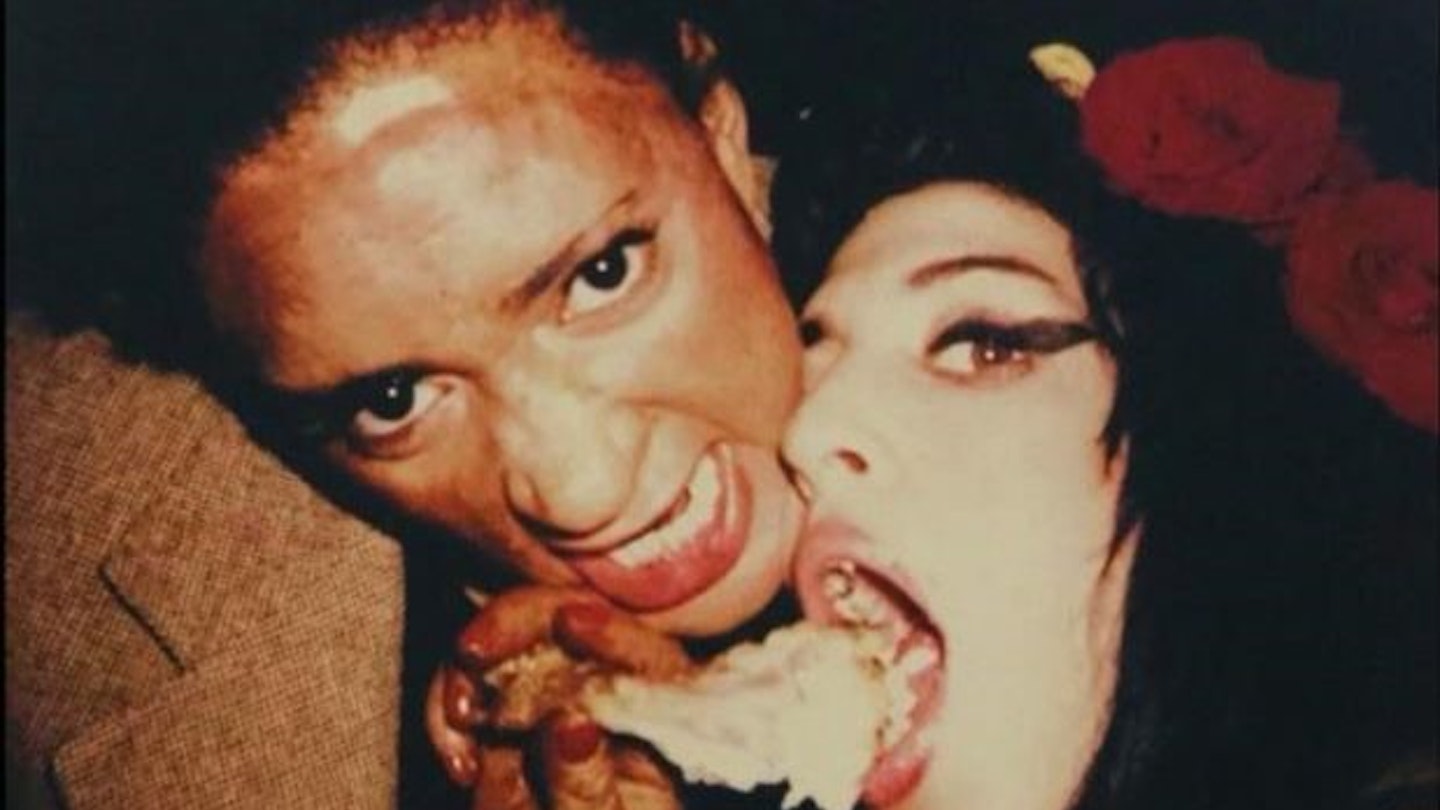Ahead of what would have been Amy Winehouse’s 40th birthday, her close friend Chantelle Dusette is thinking about how the singer might have spent her special day.
‘It’s interesting being asked to reflect on Amy’s 40th, because I wonder what kinds of conversations we’d be having now. I think then, our biggest concern was how we’d age’ she tells Grazia. Chantelle remembers one of Amy’s birthdays where she was ‘on stirring duty’ while Amy made meatballs. ‘Amy loved to cook with her friends, and we’d probably still be doing it now,' she adds.
It's been over a decade since Amy tragically died of alcohol poisoning on 23 July 2011 at her home in Camden. The 14 September marks the late singer’s 40th birthday, a poignant day for Amy’s family and friends. ‘Amy liked being motherly, but she wasn’t great with celebrating her birthday, so I wonder whether, over the years, she would have started to enjoy those more,’ says Chantelle.
Chantelle, 43, featured in the 2021 documentary Reclaiming Amy, which aired on the BBC, alongside another of Amy’s close friends, Catriona Gourlay, Naomi Parry and Michael Collins**,** her mum Janis and her dad Mitch. In a resurfaced interview shown in the documentary, Amy speaks about her plans for potential motherhood. ‘In 10 years time I'd like to have a couple of kids. Like two or three. I'd like to be there,’ she says. Amy had also shared this ambition with Chantelle. ‘Amy wanted to experience being a mother, she’d have made a lovely mum,’ she reflects.
Amy and Chantelle, a writer from London, first met through a mutual friend at Amy’s house, when the singer was 19. Even then, Chantelle was stunned by her exceptional talent. ‘Amy was just about to go into the studio to record Frank. She sang an Ella Fitzgerald cover, and I remember being mesmerised and thinking that she was a force and supremely talented. I told her as much, and she gave me a slightly mischievous smile,’ she says. Their friendship began as a ‘slow burn’ but soon ‘deepened’ as the pair spent more time together. ‘I found her very down to earth with big, forward energy. She had a tenderness to her,’ Chantelle adds.
It's well known that Amy was a talented singer from a young age. She was just 15 when she started writing her own songs, and when she was 17, she became the featured vocalist for the National Youth Jazz Orchestra in the UK. She was once quoted saying that she began her career ‘singing for old people in the back room of a pub in Rayners Lane’, before she later secured a record deal with Island/Universal. Her first album, Frank, released in 2003, was the start of Amy’s success. However, the real fame came following her second album, Back to Black, in 2006.
Chantelle acknowledges that ‘Amy didn’t have sides,’ because because ‘what you saw was what you got.’ She continues ‘when I saw her on stage, although performing, that was her. I think that’s why people felt, and still feel, such a connection to her today. Amy was authentic and completely embraced what it means to be human. She didn’t hide.’ Chantelle believes it’s this authenticity, in part, that caused Amy to struggle with her fame. In moving footage from the 2015 documentary Amy, the late singer says, ‘The thing is I don’t think I’m going to be at all famous.’ In another shot, she says ‘I’m not trying to be a star, I’m just a girl who sings.’
Chantelle reflects on meeting Amy with some friends on a trip to Paris during the promotion of Back to Black. ‘It was then that I understood how odd Amy felt being famous, because of the way people treated her, the relentless fawning. She was very real, so all of that jarred her and I think she found it unsettling,’ she says. Sadly, public struggles with drugs and alcohol followed the release of the album.
While her romantic relationships captured the attention of the press, one side the public rarely saw of Amy is the way she was around her closest friends: witty, protective, and incredibly caring. ‘I deeply miss the way she hugged - like a bear. I felt held, which is odd, considering I could fit her in my pocket. I’m 6ft and she was not,’ says Chantelle. ‘Amy is still one of the sharpest and funniest people I have ever known. She was brilliant with accents, so any storytelling included lots of characters and a performance. And her laugh was genuinely one of the best sounds. Deep and loud.’ When it comes to social media, Chantelle believes Amy would have loved ‘how bonkers’ it can be but would ‘viscerally hate’ the discourse on there.
Alongside her pioneering music, Amy’s legacy is continuing to change lives through the Amy Winehouse Foundation. The organisation was founded on what would have been the singer’s 28th birthday in 2011 to help vulnerable and disadvantaged people make informed choices about their lives. Five years later, her family launched Amy’s Place, a recovery house in East London for young women to live in after they leave treatment.
Chantelle believes there’s one other way to commemorate Amy on what would have been her 40th birthday: music. ‘I confessed to her once that ‘Frank’ was my favourite, she was incredibly proud of that album, so maybe give that a listen. I still believe the best representative for Amy is herself. Nobody did it quite like her,’ she says.
For more on the Amy Winehouse Foundation, visit amywinehousefoundation.org.
